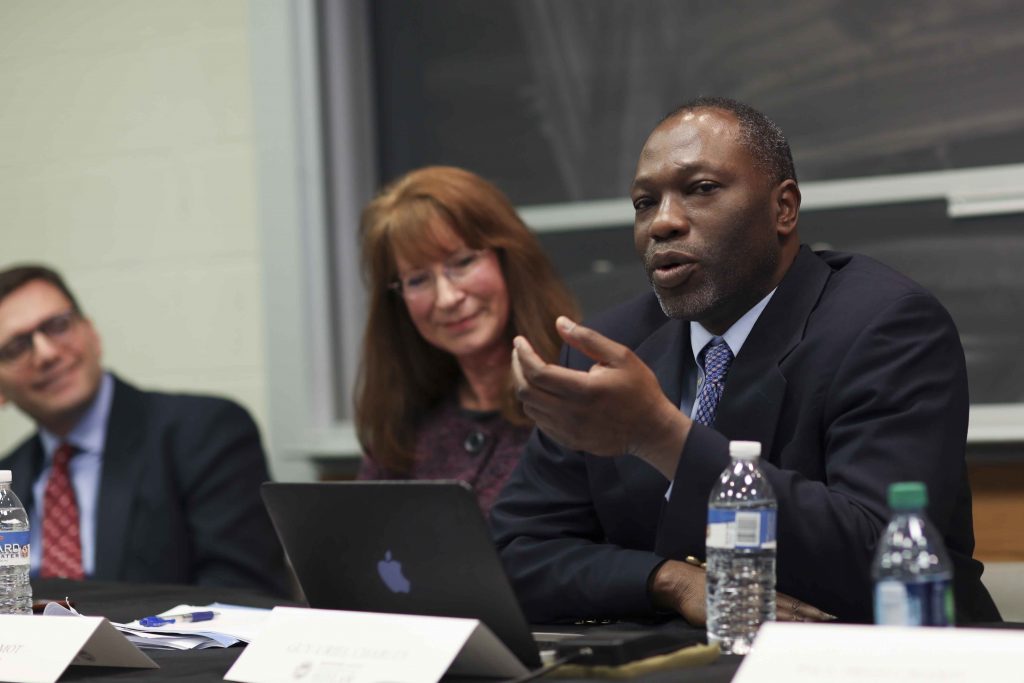Shining more light on “dark money”—or anonymous campaign donations upheld by the Citizens United v. Federal Election Commission ruling in 2010—either chills speech or safeguards the democratic process, depending on whom you ask. On February 13, four election law experts addressed this controversial issue and other problems surrounding campaign finance in a panel discussion presented by BC Law’s Rappaport Center for Law and Public Policy.
“If you think about our system, it’s so strange. Because we all vote in these geographic districts, and yet we can send money across the border to finance campaigns that are not in the districts that we’re in,” said Eugene Mazo, visiting associate professor of law at Rutgers University.
Mazo said there is a “total disconnect” in our campaign finance system between the people who vote and the people who donate—leaving politicians asking themselves, “Am I trying to please my constituents or contributors?”
“The people who tend to donate money to campaigns tend to be older, tend to be white, tend to be wealthy, they tend to have different policy positions, and tend to be the very extremes of the political spectrum,” Mazo added.
Paul Diego Craney, spokesperson and board member of the Massachusetts Fiscal Alliance, however, does not believe government officials should be the ones restricting speech.“It happens more than what people would actually acknowledge. Campaign finance law is used as a weapon to silence opposing views and speech,” he said.
Craney also argued that super PACs, political action committees that are able to accept unlimited political donations, are having less and less influence because candidates simply cannot control the timing or the message these groups are sending to the public.
“If you are like Bernie Sanders or Donald Trump, you want a lot of donors, and you want them to support you so that you can manage your own messaging and your own timing,” Craney said. “That’s the model that candidates are trying to replicate across the country.”
Pam Wilmot, the executive director of the government reform organization Common Cause Massachusetts, said candidates nonetheless need money to communicate with their constituents. And in order to “really fix our elections” and make them more transparent, accountable, and fair, Wilmot concluded we need a more robust system of public financing for elections.
To Guy-Uriel Charles, a professor of law at Duke University and visiting professor of law at Harvard, lifting the veil on anonymous donations to nonprofit political groups is key to identifying the “ruling class” of America.
“Disclosure is a way to know who the folks that you want to be paying a lot of attention to are. That’s how you know who your ruling class is, who gets to sit in the front of the bus, who gets to ride in first class,” Charles said.
The event was moderated by Kevin Martin, a partner at Goodwin Procter and co-chair of the firm’s Appellate Litigation Practice.
Photo, from left: Eugene Mazo, Pam Wilmot, and Guy-Uriel Charles


